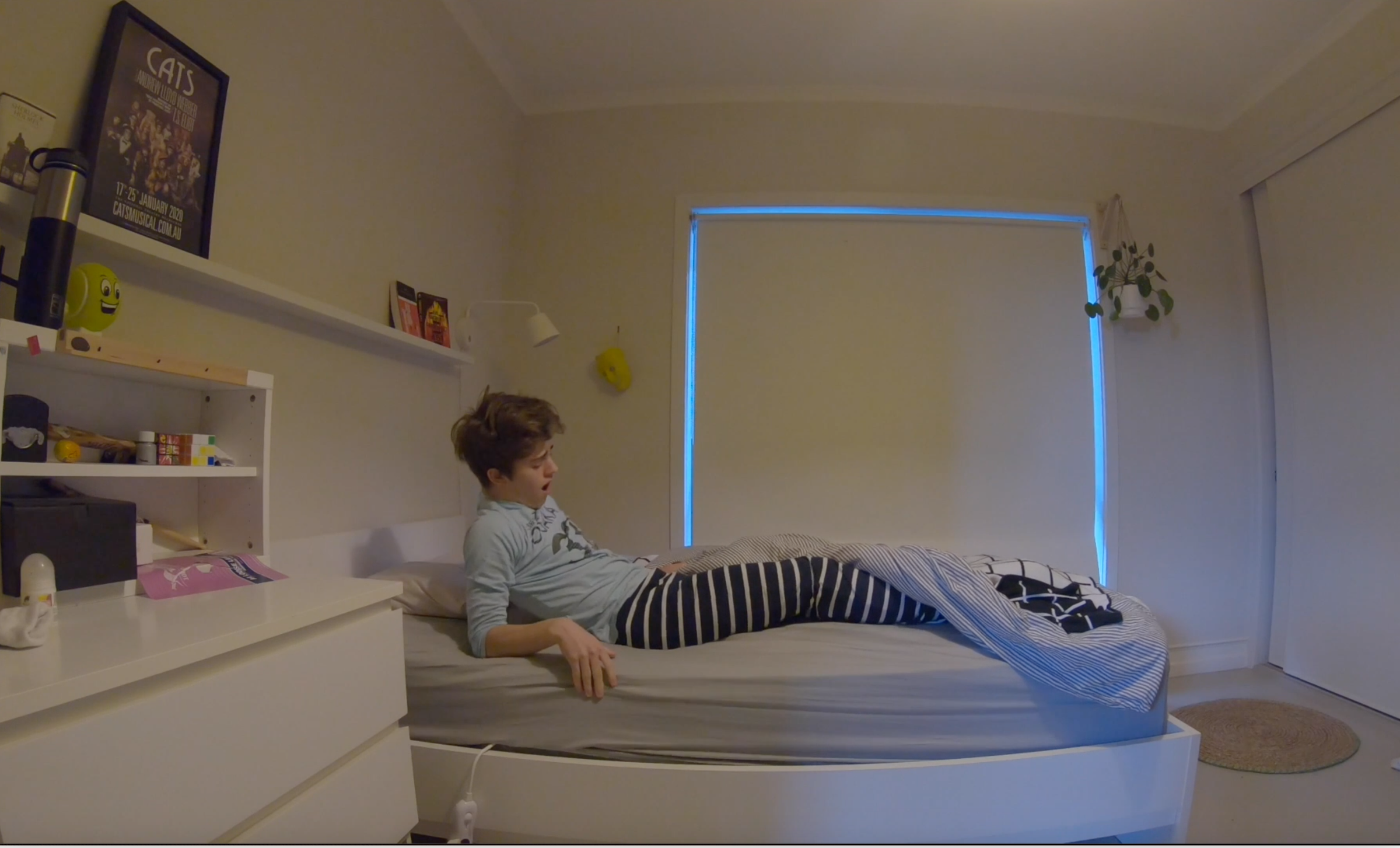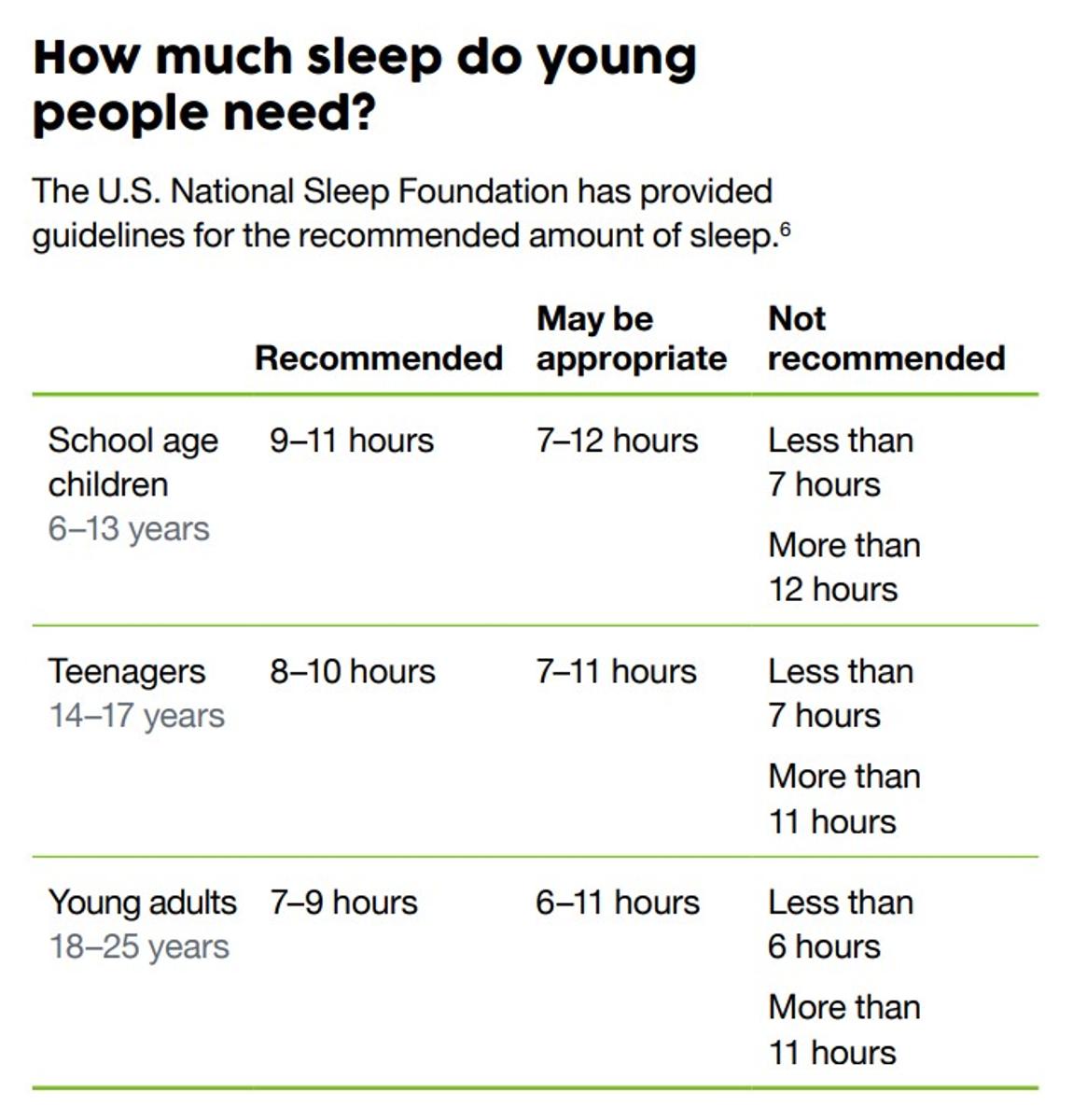Senior Years and Wellbeing

Senior Years and Wellbeing
In talking with students and parents over the remote learning period, a concern that many have raised is that their sleep patterns are not healthy or consistent. This could be due to many different factors, a change to our normal routines, stress and anxiety surrounding COVID-19 or a change to exercise and physical activity behaviours.
The table below outlines the recommended guidelines for sleep for children, teenagers and young adults. Young people need quality sleep to help with healthy growth and development. Quality sleep is also strongly linked to stronger, more positive mental health outcomes too.


Tips for a good night’s sleep:
An important point to note is that it can take 2-3 weeks of using the tips above to notice a difference to sleep patterns. If you are concerned about persistent, unhealthy sleep patterns, a GP/ doctor appointment is recommended for young people to discuss suitable support.
Source: Headspace (2019). Sleep and Young People: Putting the myths to rest.
https://headspace.org.au/assets/download-cards/HSP032-MythBuster-Sleep-and-Young-People-RGB-FA04.pdf
Kate Couchman